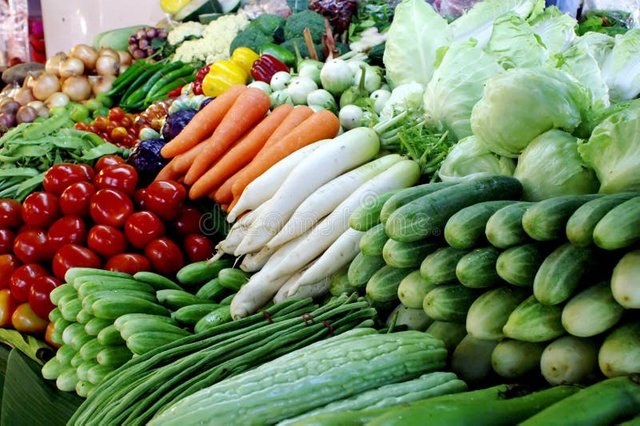Organic vegetable
Organic Vegetables
Organic vegetables are grown naturally without the use of synthetic fertilizers, pesticides, genetically modified organisms (GMOs), or harmful chemicals. They are produced using eco-friendly and sustainable farming methods that promote soil health, biodiversity, and environmental protection.
🌿 Key Features of Organic Vegetables:
- Chemical-Free Cultivation:
No artificial fertilizers, pesticides, or herbicides are used. Only natural compost, manure, and organic pest control methods are applied.
- Non-GMO:
Organic vegetables are grown from seeds that are not genetically modified, preserving their natural genetic structure.
- Soil Health Focus:
Farmers use crop rotation, composting, and cover cropping to maintain and enrich the soil.
- Environmental Sustainability:
Organic farming reduces pollution, conserves water, and promotes a balanced ecosystem.
🍅 Benefits of Eating Organic Vegetables:
Healthier & Safer:
Lower risk of pesticide exposure, which may benefit long-term health.
More Nutrients:
Some studies suggest organic vegetables may contain higher levels of certain vitamins, minerals, and antioxidants.
Better Taste:
Many people find organic vegetables fresher and more flavorful due to natural ripening.
Supports Local Farmers:
Buying organic often supports small-scale, sustainable farms.
Eco-Friendly Choice:
Reduces environmental impact and helps protect wildlife and soil for future generations.
🥦 Examples of Common Organic Vegetables:
Tomatoes
Spinach
Carrots
Broccoli
Cabbage
Lettuce
Cauliflower
Potatoes
Peas
🌱 Final Thoughts:
Choosing organic vegetables is not just about personal health—it’s also a step toward supporting sustainable agriculture and protecting the environment. Whether bought from a local organic farm or grown in your backyard, they are a smart and responsible choice for a healthier future.
